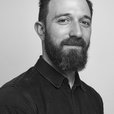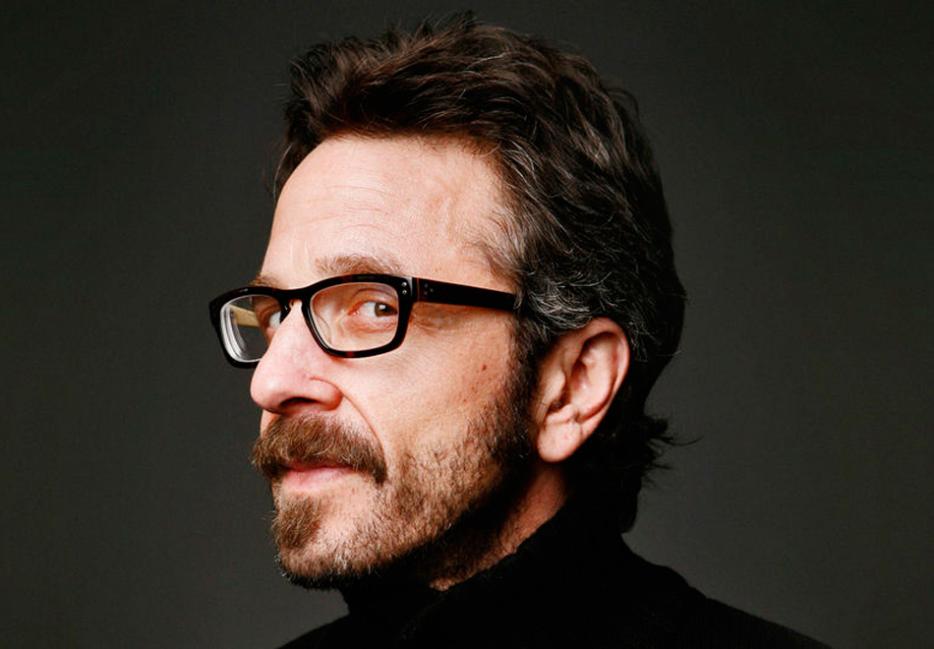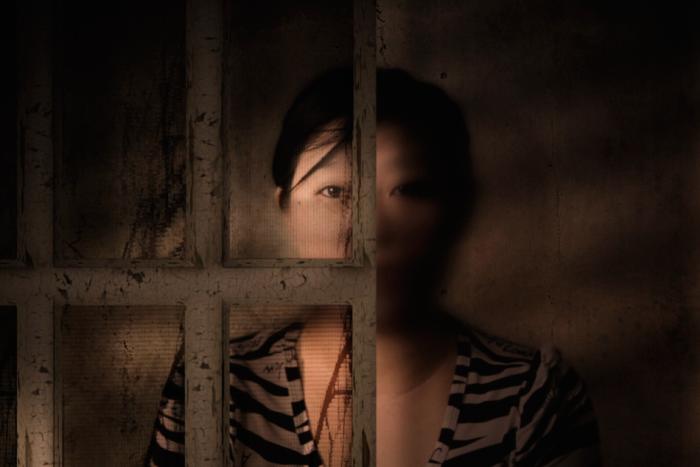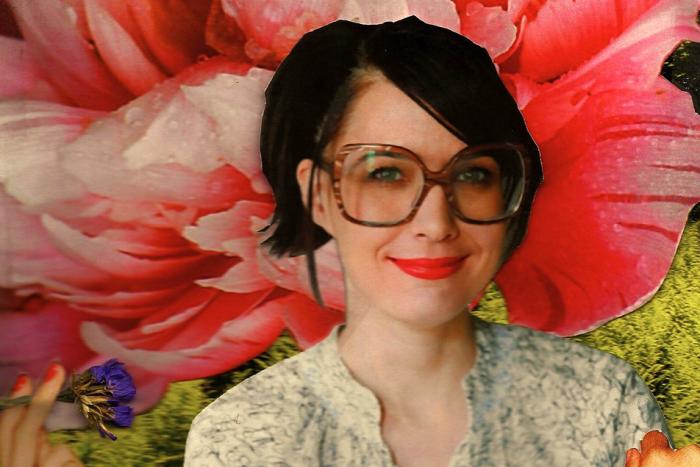“The amazing thing about being a comedian,” Marc Maron writes in his new memoir, Attempting Normal, “is that no one can tell us to stop even if we should.” Delusion, he says, is necessary for the job: Without an often-unrealistic belief in your own skills or your career’s ceiling, it’s incredibly difficult to commit to a grind where the markers of success are, for many, impossible to attain. Maron knows this. Until recently, he seemed almost ready to, if not give up, then at least resign himself to general anonymity. He’d have been in good company—another comedian who came this close.
Then, in 2009, he launched WTF, an emotionally raw and bracing and wholly rewarding podcast in which, after an introductory rant, he dives into deep, lengthy conversations with fellow comics. Maron comes armed with his own baggage—addictions, divorces, simmering rage—but, as a result, creates a safe space for guests to make tough and grisly admissions of their own. (Patton Oswalt, Robin Williams, Zach Galifianakis, Tig Notaro and Amy Poehler have all appeared on the show, as have more maligned comics such as Carlos Mencia and Gallagher.) Four years later, he has hundreds of thousands of listeners, and, in addition to Attempting Normal, which is in stores tomorrow, his new sitcom, Maron, premieres on IFC on Friday.
“They’re all very different ways of expressing yourself,” Maron says of the multiple platforms on which you can suddenly find him. “They’re all kind of me, but it’s interesting to see how these things and who I am plays out in these different mediums.” The book version in particular is a more carefully edited version of him than many people are probably used to, though more in terms of structure rather than content: While recounting nearly getting caught with a prostitute in his car years ago in Boston, he remembers worrying that, at the time, local newspapers would publish the names of johns who had been busted—now, of course, he’s reached a point where he can put that information into print on his own terms.
The book has a fairly conversational tone, which makes sense coming from you, but was that voice deliberate?
I think some of it’s conversational, some of it is not so conversational. I definitely worked hard to have a specific voice on the page; a lot of my stuff starts out as telling stories, but as you know, when you tell stories and you talk stories, they don’t always translate to the page. So it’s trying to make that work. You can do different things when you’re writing than when you’re just talking.
Do you enjoy the writing process?
I do, I do, when I get into it. I just have to sit down and focus—it’s a matter of figuring out what story I’m going to tell, and then, as you write, I think you can discover things that you really can’t discover when you’re talking. The discovery process in writing is a lot different than in improvising.
You open the book with a description of your cluttered garage/podcast studio, and you list off this “embarrassing” collection of books you haven’t read or haven’t finished, but you also say that reading can be like a drug—that when you read something you feel like you’re almost coming up the ideas on your own, that it’s a rush, and it almost doesn’t matter if you finish the books. Does the way that you read affect the way that you write or structure your stories?
I mean, I can definitely read a whole book if I’m engaged enough. But I know that if I focus on the work, and really mold the stories … that’s one of the reasons I wanted to do essays and not have one continuous through-line, to focus on each piece. When I’m working in a little shorter-form, I can compartmentalize, I can find the arc and find the beats and figure out where it’s going emotionally a little better. It’s just a matter of finding the poetry of each piece so that it has some movement somewhere. But I like essays over long-form, and I think doing it this way helped me write about a lot of different things in very specific ways.
Were some easier to write than others?
Yeah, some of them are difficult because some of them are sort of gnarly and a little dark and kind of emotional. Where do you pull that out of? What’s the resolve in it? And how does that play out on the page? I didn’t want to just drag people through events from my life without having some humour, and having some closure on things, so it was a little tricky. But I think I was fairly successful.
Memoirs tend to focus on concrete moments in a person’s past, but the essay where you’re talking to your girlfriend, Jessica, about potentially having a baby and the worries that’s stirring in you, for one, almost felt like stand-up—an unfinished story, being sorted out in public.
Well, I do that with stand-up a lot. I think that’s just one of the liabilities—or one of the benefits—of drawing immediately from your life to fuel what you do. It’s sort of what I do and, for better or for worse, it’s what I’ve been known for doing. But that turned out to be a great essay. I wrote it towards the end of the process because I had to replace one of the other ones, and it turned out to be very immediate; it feels immediate, primarily, because it is. But that’s the ongoing story.
Other stuff in the book, I have closure over. It’s tricky, too, when you write about things you do have some closure around and that you’ve moved on from, because there’s the feeling that you’re picking scabs or picking at wounds, and is that really necessary? But then you’re like, well, this is my life. When you do get a little distance from it, you get a little more perspective and it’s not as loaded as it used to be.
A lot of your stories deal with living people who are still part of your life to some extent. How much of a consideration is that for you? Do they understand that you talking or writing about them might be part of the deal that comes along with being around you?
Yeah, certainly—I’ve dealt with this with women in my life. I’ve dealt with it with my parents before. But this is on a different scale; I let my mother read the book and I let Jessica read the book, and there were some issues that had to be dealt with. And I do respect their opinions—certainly Jessica at this point in time, because I live with her. But that’s a consideration, and it’s a little frightening sometimes, but you have to weigh it out. I try to be as respectful as possible. There are some points where I had to let people read the book and say, Well, is this okay? And if it’s not okay, I have to hear that out and then make a decision. I did take a piece out of there because Jessica wasn’t comfortable with it, because she thought it was one-sided, and she was right.
Did you keep things in there that people did have problems with?
Well, we’ll see.
You’ve also got a new sitcom, Maron, starting Friday on IFC, where you play a version of yourself, right down to being a podcast host. What’s the process of fictionalizing yourself like?
It was a collaborative effort. I worked with a lot of people—I didn’t sit there and think, How am I going to fictionalize myself? I just sort of showed up and we wrote these 10 scripts, and I honoured the scripts and did it that way.
There’s a scene in an early episode where your character has a bit of a meltdown in front of a fan who’s forced his way into your life, and in the middle of it, the fan suddenly admits to having been molested, and then you bond. This seems like an outsized version of some of your WTF interviews, but does that actually happen now? Do people come to you for advice or treat you as a sounding board for their own neuroses?
I don’t know if that’s the case. I think that people who listen to me identify with a lot of it and they feel a little less lonely in the world, but they don’t usually come up to me and do that. I do sort of bring a lot to the table with my own emotional baggage, but I still think it’s an exchange of emotions; I don’t think people necessarily look to me to dump their problems on. But if the conversation goes there on the podcast, they feel like they can do it, because I have sort of learned to open my heart a bit and listen in that way.
Does a more messed-up guest make for a better show?
No, I’ll roll with anything. There are a lot of great stories that aren’t necessarily grounded in people’s issues or difficulties. I’ll roll with the punches, whatever happens. I just want it to be an engaged conversation—I’m not looking for controversy or mining for pain. I don’t really prepare questions, I just get a sense of who someone is and see where the conversation goes. I’m in a position where I don’t have to plug anything—it’s not about moving product or anything else. For me, the best conversation is just when you sort of lose yourself in the conversation. It’s an emotional thing.
Do any episodes stand out as favourites?
It’s really hard for me to answer that question. There’s been almost 400 of them, and very few of them have been disappointing, if any. There’s always something. I’ve had different experiences with different people, there are different things covered—I interviewed Mel Brooks, that was amazing, and I felt like I connected with him. I’ve interviewed a lot of people that people have never heard of, and some of those are the best episodes that I’ve done. And there are episodes where I’ve interviewed people that you think you know from the public persona, but you’re almost always wrong. There’s a lot of ways to judge or determine what is a good episode—there are a lot of different things that come into it. There’s more than I can count that have been amazing, sort of life-changing events for me.
Do you ever go back and listen to the older ones?
No, I don’t listen to any of them after I’m done with them. I remember the conversations as they happened a bit—sometimes when I do radio or something, people will play segments and I’m always sort of amazed by that. I just didFresh Air with Terry Gross on NPR and she played some segments of the Louis [C.K.] episode that were emotionally loaded, and I can go right back there. Some of them are heavy, and it’s a little mind-blowing to hear them again.
Back to the book, there’s a story you tell about being on a flight where you start profiling a Middle Eastern-looking guy, and even though the joke is ultimately on you, it’s a window into a pretty dark place in your brain. How different is it telling a story like that on stage, where you can sense how the room is reacting and respond accordingly, versus writing it in a book, where you get one shot and you just hope people understand what you were trying to say?
It’s very different. The way you structure something for the stage, you add things [in the moment]. Comedy has a precision to it as well, but I’m pretty conversational. With a book, you have a moment where you can do what you’re doing, and you can write what you’re writing, but you can also reflect on it in the moment and sort of extrapolate bigger themes in your life from that event. There’s a way of phrasing things on the page you can’t really do as a stand-up.
And, reading is something someone does alone; stand-up is something someone does in front of a group. A podcast is also something someone does alone, but the emotions are still like stand-up, it’s conversational—they’re completely hinged to what’s coming out of your mouth. With a book, it’s completely hinged to the words on the page. There’s a different set of rules and tools for extracting emotion, or humour, or whatever. Writing is important to stand-up, and some jokes can stand on their own no matter what, but if you do point-of-view stand-up, a lot of that has to do with the moment. In the book, that moment has to repeat itself every time its read, whereas with stand-up, some nights your joke can work great, other nights it might not.
But you get another chance, at least.
Yeah, I guess. With a book it’s a completely different mode. Stand-up has a context. You have to make people laugh. Books, you can run the gamut of emotions. You can do that in stand-up, too, but it’s a completely different form. My voice on page is like my voice in stand-up, but there’s a written tone that you can’t do on the stage.
The book definitely runs through that range of emotions—it’s very funny, but there are purposely serious and touching moments, too. As a comedian, though, writing a book where the assumption might be that it’s going to be a work of humour throughout, did you feel any pressure to make sure you were constantly being funny?
No. I mean, humour can sometimes be very limiting, and there are certain things in the book that needed to be emotional and I didn’t want to trivialize them. But I think I found humour in every piece in there. But it wasn’t necessarily “joke” jokes or punch lines—some of that stuff is dark, and some of the situations are difficult and odd and very personal. And obviously there are writers who do that for a living, but I just wanted to trust my voice. I can be dramatic, or I can be lyrical, but I really chose with this book to keep it focused and relatively minimal. I didn’t want to over-elaborate, because that’s not the kind of person I am, but it’s easy to fall into that on the page. There were drafts of things that I found to be like that, and I was like, Well, let’s just get to the point here. So I want to keep it tight, but also keep some emotional punch and a comedic punch.
For someone who’s been pretty autonomous up to this point, what’s it like working with an editor?
I like collaborating. It’s very exciting to me. I can only trust myself to a certain degree, and there are some things I’m not a professional at. I’m not a professional writer, I’m not a professional actor—I’ve never done a TV show before, and I’ve only written one other book in my life and it was a very harrowing experience. So I was happy that my editor was sensitive and dug what I do. Once I delivered everything, that’s when we really started to build the book. Having trust in that is important, and he did a great job.
There’s a great moment where you talk about playing shows with the comedian Frankie Bastille, who was a heroin addict, and describing your revelation that comics—some of whom you affectionately describe as conmen and fuckups and outlaws—were your people. They may be difficult humans, but they’re fascinating and funny and you feel engaged around them. Is it worth it, though? What do you think of that idea that you have to be tortured to be at your creative peak?
Look, anybody’s struggle is their struggle. A lot of times the struggle is funny. A lot of people lose the struggle. Some of the best comics have been difficult people and have had problems, and some of the best comics had limited problems. Is it worth it to remain fucked-up and destructive in the name of your art? I don’t know. Most of the guys that champion that lifestyle publicly, that’s part of their shtick—they’re rebels, they’re fighters. Some guys quietly toil away in misery and destroy themselves and no one has any idea—they just think they’re the funniest guys in the world. I’ve known very few people ... you know, this idea that people stay in their misery, I don’t find that to be true. I think that’s a fallacy. Some people, yeah, they say, Well, if I don’t do drugs, if I don’t do this or that, I’m not going to have my voice, or I’m not going to be as funny. But I’ve seen very few indications of that, and I’ve known very few people who have consciously decided for the long haul to stay fucked-up in order to service their art. I think most of the time, if you really were to parse that, what they’re saying is, I can’t stop, and this is how I’m going to rationalize it. Which comes first, the chicken or the egg, the drug addiction or the idea of a fucked-up artist? Is it worth it to kill yourself for your art? I guess, if that’s the way you want to go out. But is it more interesting to evolve your art as you evolve as a person, even if it’s more frightening because you’re not as screwed up as you were? Yeah, I think that’s probably the better plan.
And for you personally—whether rightly or wrongly, you’ve developed a reputation as sort of self-loathing and insecure, but you also talk at length about trying to understand that side of yourself and manage it. Do you think people sometimes miss that second part?
I don’t see myself as particularly self-loathing. I see myself as an over-thinker—I see myself as anxious and somewhat cranky. I’m not as cynical as I used to be, I’m not as bitter as I used to be, but I’m still full of panic and random flights of anger. But ultimately, dude, my journey is really about ... the whole thing was about becoming myself, and feeling that I am as authentic as I can be. I think my entire journey in life and my reason for choosing comedy was to find a space where I could come into myself. And I think it’s happened, for better or for worse, and it happened relatively recently.
The podcast took off after spending 20 some-odd years trying to do the only thing I wanted to do—the only thing I committed my life to, which was stand-up comedy. And I had a moment where I let a lot of that go [before starting the podcast], where I didn’t think I was going to get the TV show, I didn’t think I was going to write another book, I never thought I would be relevant at all. So to do this thing that is the most honest thing I’ve done, and the most organic and authentic I’ve been and for people to respond to that, however many people that is, gave me a sense of self-esteem for the first time in my life. It wasn’t so much that I hated myself, but there was a sort of competitive and aggravated insecurity about my work. But then again, I wasn’t that disciplined, I never saw myself as an entertainer, I was not that responsible in terms of my public behaviour, and I wasn’t really aware of business politics in terms of how one has a career—I just knew I wanted to be a stand-up comic, and that was important. I knew I could only do it the way I do it. There was no, How am I going to do stand-up? How am I going to get this or that? It was really just, like, I can only do it the one way I do it. I take a lot of emotional risks in terms of how I do it, and that’s just the way I am.






